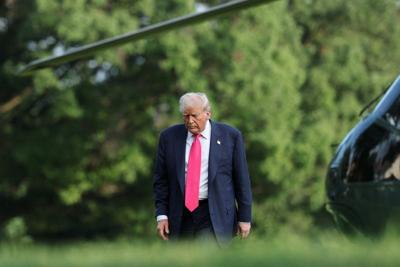Former U.S. President Donald Trump implemented significant tariff measures against South Korea, Brazil, and India, profoundly impacting global trade relations and sparking considerable economic debate.
A central focus of these policies was South Korea, which faced a 15% tariff on imports, including automobiles, as part of a broader trade deal. Concurrently, South Korea agreed to open its markets to American products like autos and agricultural goods, committing to no import duties on these items.
The agreement also ensured South Korean firms would not be disadvantaged by upcoming tariffs on crucial sectors such as chips and pharmaceutical products, though a 50% tariff on steel and aluminum remained. Furthermore, South Korea pledged a substantial $350 billion investment in U.S. projects.
This significant investment included $150 billion earmarked for shipbuilding cooperation, with the remaining $200 billion spread across vital industries like chips, batteries, biotechnology, and nuclear energy. Additionally, South Korea committed to purchasing $100 billion worth of liquefied natural gas or other energy products, signaling a strategic shift in its energy import sources from the Middle East.
Brazil also faced the brunt of Trump’s tariff agenda, with a 50% tariff slapped on most Brazilian goods. This aggressive move was presented as a stand against what he termed a “witch hunt” targeting former President Jair Bolsonaro.
However, the impact on Brazil was somewhat mitigated by notable exemptions, particularly in key sectors like aircraft, energy, and orange juice, which were shielded from the heavier levies. This selective application aimed to balance economic pressure with strategic alliances.
India, too, found itself in trade negotiations with the U.S., facing a proposed 25% tariff on goods. A primary point of contention remained India’s reluctance to open its agricultural and dairy markets, a stance rooted in protecting millions of its impoverished farmers.
Historically, New Delhi has excluded agriculture from free trade pacts to safeguard domestic livelihoods. A White House fact sheet highlighted India’s average Most Favoured Nation (MFN) tariff of 39% on imported farm goods, starkly contrasting the U.S.’s 5%, with some Indian duties soaring as high as 50%. Washington continued to push for enhanced market access for American agricultural, ethanol, dairy, alcoholic beverage, auto, pharmaceutical, and medical device products.






Leave a Reply